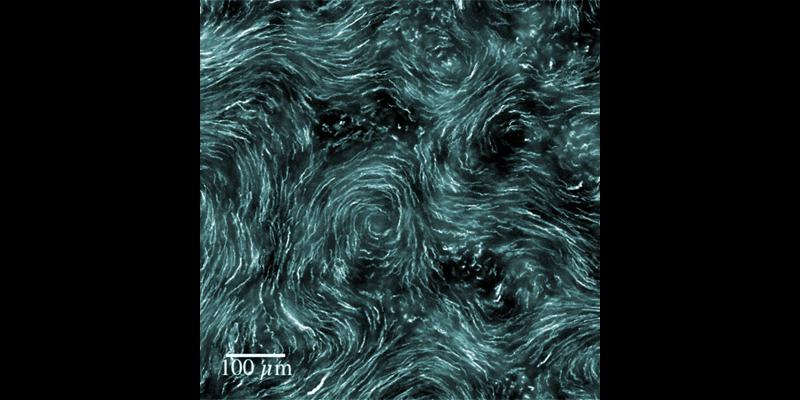- Share
- Share on Facebook
- Share on X
- Share on LinkedIn
Séminaire
On June 5, 2023

Carine Douarche (FAST, Université Paris-Saclay)
Bacteria are simple living beings endowed, for some of them, with long flagellar filaments that are consider as motility organs. Provided they find a microscopic energy source, they use flagella rotation to self-propel in the medium at low Reynolds number. The mechanisms of bacterial motility and chemotaxis are relatively well understood at the cell; however, how an entire population moves at the macroscopic scale in heterogeneous environments still raises fundamental questions. The study of the behavior of a population of Escherichia coli in oxygen gradients shows that the presence of bacteria in the suspension locally modifies the properties of the environment which in turn act on the behavior of the cells. The bacteria are thus able to adapt their motility and self-assemble collectively to form macroscopic patterns.
When these bacterial suspensions reach significant concentrations, they further display remarkable properties such as the appearance of collective motions, i.e. local bacterial ordering associated with a characteristic correlation length scale, reminiscent of turbulent phenomenon. This behavior emerging from the group confers unconventional macroscopic properties to the suspension and leads to a new paradigmatic approach of these out-of-equilibrium physical and hydrodynamical active systems.
Date
14:00
Localisation
LIPhy, salle de conférence
- Share
- Share on Facebook
- Share on X
- Share on LinkedIn